So much has already been said from all quarters regarding Pneumatology. And many times, the focus has been misplaced, such as upon phenomena or an individual’s gifts. But whether the flame and wind of the Spirit come as a firestorm and hurricane or as a steady flicker and gentle breeze, it’s the same untamable Spirit working in and through God’s people to heal humanity and creation. It’s about God and his lavish Gift by which we, his redeemed people, carry out his purposes in the world he loves.
That’s the purpose of Pentecost.
“Sometimes a name, belonging to one particular person, becomes so attached to a particular object or product that we forget where it originally came from. The obvious example is ‘Hoover’: in England at least we speak of ‘the Hoover’ when we mean ‘the vacuum cleaner’, happily ignoring the fact that quite a lot of vacuum cleaners are made by other companies which owe nothing to the original Mr Hoover. It is as though Henry Ford had been so successful in car production that people said ‘the Ford’ when they meant ‘the car’, even if in fact it was a Volvo.
Something similar has happened with the word ‘Pentecost’. If ‘Pentecost’ means anything at all to most people today, it is probably something to do with ‘Pentecostalism’. And that — again, if it means anything to people at all — probably signifies a somewhat wild form of Christian religious experience and practice, outside the main stream of church life, involving a lot of noise and waving of arms, and (of course) speaking in tongues. We often forget that all Christians, not only those who call themselves ‘Pentecostalists’, derive their meaning from the first Pentecost. We often forget, too, perhaps equally importantly, just what ‘Pentecost’ itself originally was and meant.
For a first-century Jew, Pentecost was the fiftieth day after Passover. It was an agricultural festival. It was the day when farmers brought the first sheaf of wheat from the crop, and offered it to God, partly as a sign of gratitude and partly as a prayer that all the rest of the crop, too, would be safely gathered in. But, for the Jew, neither Passover nor Pentecost were simply agricultural festivals. These festivals awakened echoes of the great story which dominated the long memories of the Jewish people, the story of the Exodus from Egypt, when God fulfilled his promises to Abraham by rescuing his people. Passover was the time when the lambs were sacrificed, and the Israelites were saved from the avenging angel who slew the firstborn of the Egyptians. Off went the Israelites that very night, and passed through the Red Sea into the Sinai desert. Then, 50 days after Passover, they came to Mount Sinai, where Moses received the law. Pentecost, the fiftieth day, isn’t (in other words) just about the ‘first fruits’, the sheaf which says the harvest has begun. It’s about God giving to his redeemed people the way of life by which they must now carry out his purposes.
All of that, and more besides, keeps peeping out from behind what the New Testament says about the spirit, and about Pentecost in particular. For Luke there is a kind of easy assumption that people would know about the first fruits. He can more or less take it for granted that readers will see this story, of the apostles being filled with the spirit and then going on to bear powerful witness to Jesus and his resurrection and to win converts from the very first day, as a sign that this is like the sheaf which is offered to God as the sign of the great harvest to come. And, when we look closely at the way some Jews told the story of the giving of the law on Mount Sinai, we can see some parallels there, too. When the Israelites arrived at Mount Sinai, Moses went up the mountain, and then came down again with the law. Here, Jesus has gone up into heaven in the ascension, and — so Luke wants us to understand — he is now coming down again, not with a written law carved on tablets of stone, but with the dynamic energy of the law, designed to be written on human hearts.
‘Pentecost’, then, is a word with very particular meaning, which Luke is keen that we should grasp. But of course the first day of Pentecost, and the experience of God’s spirit from that day to this, can no more be reduced to theological formulae and interesting Old Testament echoes than you can reduce a hurricane to a list of diagrams on a meteorologist’s chart. It’s important that someone somewhere is tracking the hurricane and telling us what it’s doing, but when it comes to Pentecost it’s far more important that you’re out there in the wind, letting it sweep through your life, your heart, your imagination, your powers of speech, and transform you from a listless or lifeless believer into someone whose heart is on fire with the love of God. Those images of wind and fire are of course what Luke says it was like on the first day. Many Christians in many traditions have used similar images to describe what it is sometimes like when the spirit comes to do new things in the lives of individuals and communities.
It is most significant, in the light of what we said before about the ascension, that the wind came ‘from heaven’ (verse 2). The whole point is that, through the spirit, some of the creative power of God himself comes from heaven to earth and does its work there. The aim is not to give people a ‘spirituality’ which will make the things of earth irrelevant. The point is to transform earth with the power of heaven, starting with those parts of ‘earth’ which consist of the bodies, minds, hearts and lives of the followers of Jesus — as a community: notice that, in verse 1, Luke stresses the fact that they were all together in one place; the spirit comes, not to divide, but to unite. The coming of the spirit at Pentecost, in other words, is the complementary fact to the ascension of Jesus into heaven. The risen Jesus in heaven is the presence, in God’s sphere, of the first part of ‘earth’ to be transformed into ‘new creation’ in which heaven and earth are joined; the pouring out of the spirit on earth is the presence, in our sphere, of the sheer energy of heaven itself. The gift of the spirit is thus the direct result of the ascension of Jesus. Because he is the Lord of all, his energy, the power to be and do something quite new, is available through the spirit to all who call on him, all who follow him, all who trust him.
The wind and the fire are wild, untameable forces, and the experience of the wind rushing through the house with a great roar, and the fire coming to rest on each person present, must have been both terrifying and exhilarating. Of course, there are many times later in this book, as there are many times in the life of the church, when the spirit works softly and secretly, quietly transforming people’s lives and situations without any big noise or fuss. People sometimes suppose that this is the norm, and that the noise, the force and the fire are the exception — just as some have supposed, within ‘Pentecostal’ and similar circles, that without the noise and the fire, and particularly the speaking in tongues, something is seriously lacking or deficient. We should beware of drawing either conclusion. Luke clearly intends to describe something new, something that launched a great movement, as a fleet of ships is launched by the strong wind that drives them out to sea or a forest fire is started by a few small flames. He intends to explain how it was that a small group of frightened, puzzled and largely uneducated men and women could so quickly become, as they undoubtedly did, a force to be reckoned with right across the known world.
In particular, Luke highlights this strange phenomenon of ‘speaking in tongues’. This has been a prominent feature of some parts of church life in the last century or so, though for many previous generations and in many parts of church history it has been virtually unknown. It occurs, it seems, in other religions, as Paul was aware (1 Corinthians 12.2–3). Some people try to sweep ‘tongues’ aside as if it was a peculiar thing which happened early on and which, fortunately, doesn’t need to happen any more. Sometimes this is combined with a sense of the need to control the emotions, both one’s own and other people’s. But ‘speaking in tongues’ and similar phenomena are, very often, a way of getting in touch with deeply buried emotions and bringing them to the surface in praise, celebration, grief or sorrow, or urgent desire turned into prayer. It is hard, seeing the importance of ‘tongues’ in the New Testament, and their manifest usefulness in these and other ways, to go along with the idea that they should be ruled out for today’s church.
In particular, it is precisely part of being a genuine human being, made and renewed in God’s image, that people should do that most characteristic thing, using words and language, in quite a new way. We are called to be people of God’s word, and God’s word can never be controlled by rationalistic schemes, or contained within the tight little frameworks that we invent to keep everything tidy and under control.
People sometimes feel guilty if they think they haven’t had such wonderful experiences as the apostles had on the first Pentecost. Or they feel jealous of those who seem to have had things like this happen to them. About this there are two things to say. First, as we saw in the first chapter, God moves mysteriously among his people, dealing with each individual in a different way. Some people are allowed remarkable experiences, perhaps (we can’t always tell) because they are going to have to go into difficult situations and need to know very directly just how dramatically powerful and life-transforming God can be. Other people have to work in quiet and patient ways and not rely on a sudden burst of extra power to fix all the problems which in fact need a much more steady, and perhaps much deeper, work. There is no room for pride or jealousy in a well-ordered fellowship, where everybody is as delighted with the gifts given to others as with those given to themselves.
Second, it is clear from words of Jesus himself (Luke 11.13) that God longs to give the holy spirit to people, and that all we have to do is ask. What the spirit will do when he comes is anybody’s guess. Be prepared for wind and fire, for some fairly drastic spring-cleaning of the dusty and cold rooms of one’s life. But we should not doubt that God will give his spirit to all who seek him, and that the form and direction that any particular spirit-led life will take will be (ultimately, and assuming obedience and faith) the one that will enable that person, uniquely, to bring glory to God.”
NT Wright, Acts For Everyone

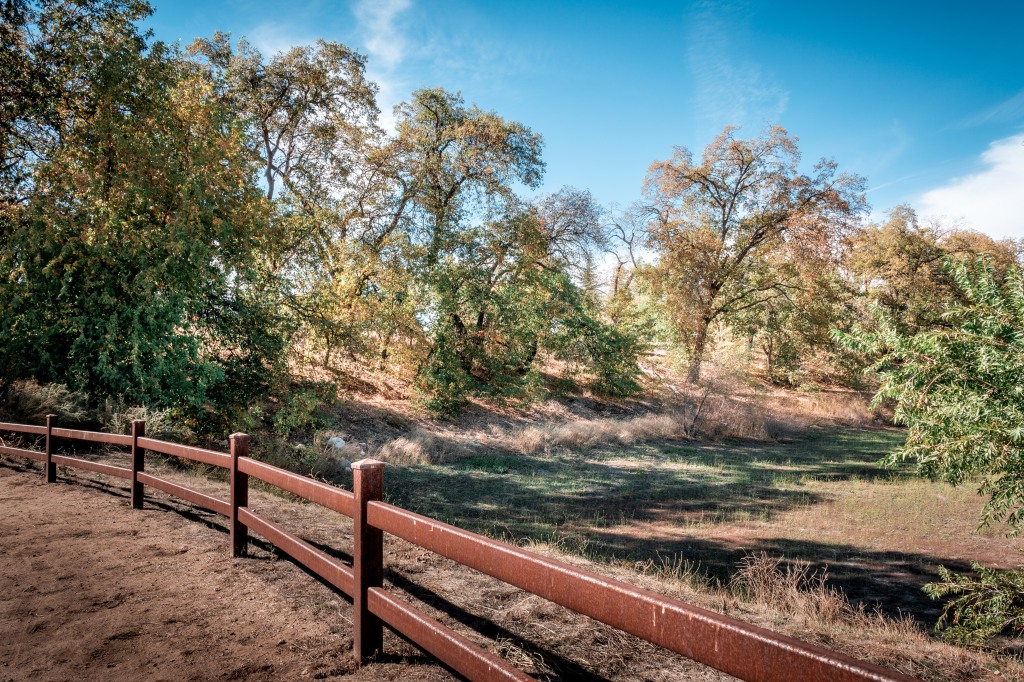

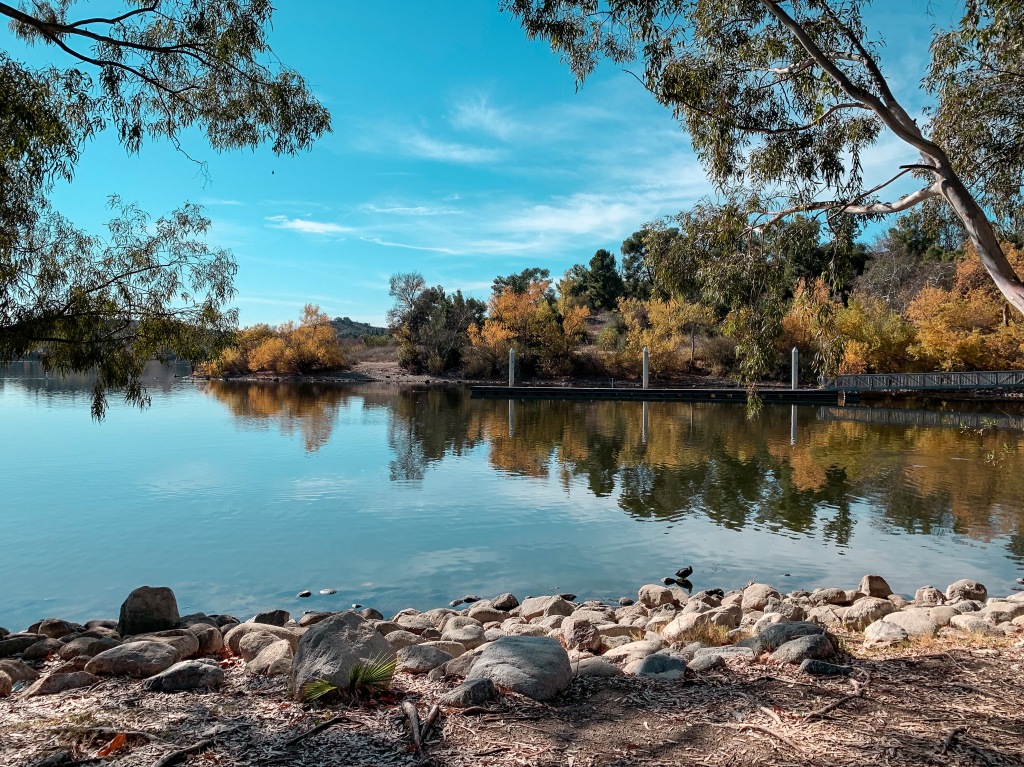


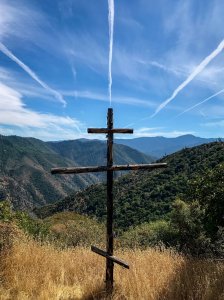 Occasionally, I like to simplify everything back to its core. I especially like to do this with the idea of The Gospel, which we are to live and communicate.
Occasionally, I like to simplify everything back to its core. I especially like to do this with the idea of The Gospel, which we are to live and communicate.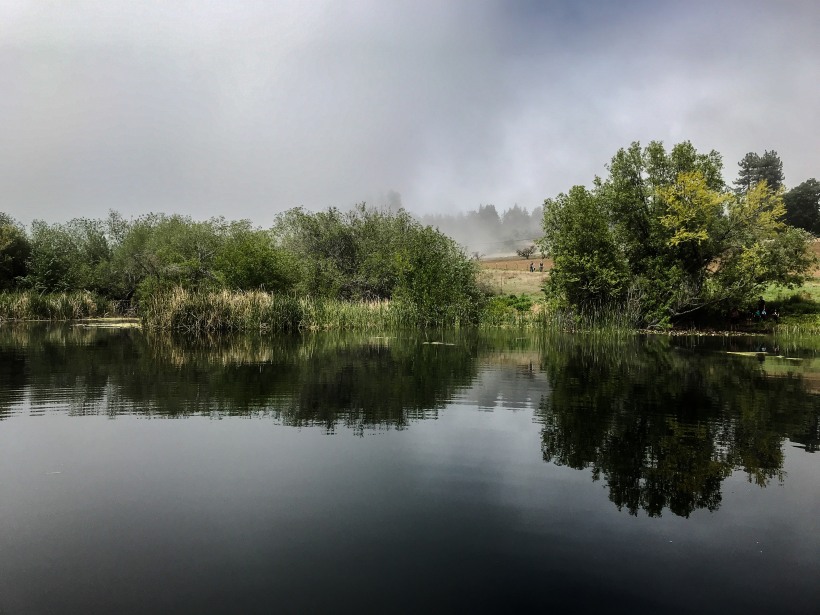 Last weekend, our family visited Oak Glen, a favorite location of ours. This visit was unique because a thick fog rolled in, altering the landscape. So during our visit, I took several photos with my phone. One of the photos was a reflection shot of the pond in the botanical garden. When I took the photo, I thought the image was free of fellow visitors. But when I got home, uploaded the photo to Lightroom and expanded it, I noticed there were a couple of people in the image. The larger screen and software enabled me to see the scene better than when I was actually standing there.
Last weekend, our family visited Oak Glen, a favorite location of ours. This visit was unique because a thick fog rolled in, altering the landscape. So during our visit, I took several photos with my phone. One of the photos was a reflection shot of the pond in the botanical garden. When I took the photo, I thought the image was free of fellow visitors. But when I got home, uploaded the photo to Lightroom and expanded it, I noticed there were a couple of people in the image. The larger screen and software enabled me to see the scene better than when I was actually standing there. I don’t think I need to convince anyone when I state that our lives are filled, perhaps overfilled, with activity. Usually from the moment we awake to the moment our bodies drift to sleep, we are doing something. And many of those activities have formed our identity, reinforcing and energizing those activities.
I don’t think I need to convince anyone when I state that our lives are filled, perhaps overfilled, with activity. Usually from the moment we awake to the moment our bodies drift to sleep, we are doing something. And many of those activities have formed our identity, reinforcing and energizing those activities.
 “Give me a freakin’ break! I trusted him! I followed him! I left everything! He was supposed to be Israel’s king. And he went and got himself killed like all the other “messiahs” before him. Now you’re telling me that he’s alive? Give me a break!
“Give me a freakin’ break! I trusted him! I followed him! I left everything! He was supposed to be Israel’s king. And he went and got himself killed like all the other “messiahs” before him. Now you’re telling me that he’s alive? Give me a break! In my early years as a Christian, it was easy for me to dismiss liturgy as being ritualistic. Unfortunately, there are too many anecdotes that validated my belief. As I matured over the years, I observed two things. First, many who dismissed liturgy as ritualistic only replaced one form of liturgy with another, albeit a much simpler one. For example, at the Vineyard, we had an unspoken liturgy that we followed at virtually every service — 30-45 minutes of singing, announcements, sermon, altar call, and then prayer time. Similar liturgies were performed in other churches and denominations I attended.
In my early years as a Christian, it was easy for me to dismiss liturgy as being ritualistic. Unfortunately, there are too many anecdotes that validated my belief. As I matured over the years, I observed two things. First, many who dismissed liturgy as ritualistic only replaced one form of liturgy with another, albeit a much simpler one. For example, at the Vineyard, we had an unspoken liturgy that we followed at virtually every service — 30-45 minutes of singing, announcements, sermon, altar call, and then prayer time. Similar liturgies were performed in other churches and denominations I attended.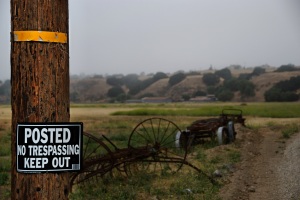 Christian history is replete with this type of misguided zeal. A serious problem occurs when protecting the fidelity of the Faith eclipses the actual values of the Faith. While we may not literally call down fire, we resort to other tactics. We’ll label ourselves and others so that it creates an “us” vs “them” dichotomy. We’ll denounce others who are not in our group while we exalt ourselves as being genuine Christians. We’ll resort to “straw man” tactics or compare our group’s best with their group’s worst.
Christian history is replete with this type of misguided zeal. A serious problem occurs when protecting the fidelity of the Faith eclipses the actual values of the Faith. While we may not literally call down fire, we resort to other tactics. We’ll label ourselves and others so that it creates an “us” vs “them” dichotomy. We’ll denounce others who are not in our group while we exalt ourselves as being genuine Christians. We’ll resort to “straw man” tactics or compare our group’s best with their group’s worst. “I urge you, brothers and sisters, by our Lord Jesus Christ and by the love of the Spirit, to join me in my struggle by praying to God for me. Pray that I may be kept safe from the unbelievers in Judea and that the contribution I take to Jerusalem may be favorably received by the Lord’s people there.” -Romans 15:30-31
“I urge you, brothers and sisters, by our Lord Jesus Christ and by the love of the Spirit, to join me in my struggle by praying to God for me. Pray that I may be kept safe from the unbelievers in Judea and that the contribution I take to Jerusalem may be favorably received by the Lord’s people there.” -Romans 15:30-31 The other day I was reading Acts 1:21-26. This is the episode when the Apostles replace the fallen Judas as one of The Twelve.
The other day I was reading Acts 1:21-26. This is the episode when the Apostles replace the fallen Judas as one of The Twelve. “A Christian is: a mind through which Christ thinks, a heart through which Christ loves, a voice through which Christ speaks, and a hand through which Christ helps.” -St Augustine
“A Christian is: a mind through which Christ thinks, a heart through which Christ loves, a voice through which Christ speaks, and a hand through which Christ helps.” -St Augustine In this light, right or wrong is either the path toward eternal being or non-being. Or to borrow Jesus’ imagery, it’s either remaining connected to the vine and naturally thriving or being cut off and naturally withering.
In this light, right or wrong is either the path toward eternal being or non-being. Or to borrow Jesus’ imagery, it’s either remaining connected to the vine and naturally thriving or being cut off and naturally withering. One of the beautiful aspects of Eastern Orthodoxy are the icons of the saints. The saints are those whom the Church recognizes to have lived a full life of actually enduring to the likeness of Christ. Most are apostles, martyrs, church fathers, and monastics. But for every recognized saint, there are thousands upon thousands of unknown and unmentioned saints.
One of the beautiful aspects of Eastern Orthodoxy are the icons of the saints. The saints are those whom the Church recognizes to have lived a full life of actually enduring to the likeness of Christ. Most are apostles, martyrs, church fathers, and monastics. But for every recognized saint, there are thousands upon thousands of unknown and unmentioned saints. This October marks the ten-year anniversary of one of the most remarkable moments of my life — the day I baptized my kids.
This October marks the ten-year anniversary of one of the most remarkable moments of my life — the day I baptized my kids. As the hymn draws to an end, the iconostasis doors open and the Great Procession begins. The priest carries Jesus’ body and blood into our midst. HE IS PRESENT RIGHT HERE, RIGHT NOW!
As the hymn draws to an end, the iconostasis doors open and the Great Procession begins. The priest carries Jesus’ body and blood into our midst. HE IS PRESENT RIGHT HERE, RIGHT NOW! I want to ask a tough question. “What’s God doing in and saying to you right now in your life?” I told you it’s a tough question. I’m not sure I could provide a stellar answer right now.
I want to ask a tough question. “What’s God doing in and saying to you right now in your life?” I told you it’s a tough question. I’m not sure I could provide a stellar answer right now. But may all who seek you rejoice and be glad in you; may those who love your salvation say continually, “Great is the Lord!” -Psalm 40.16
But may all who seek you rejoice and be glad in you; may those who love your salvation say continually, “Great is the Lord!” -Psalm 40.16 Here’s a quote from Archbishop Anastosios worth mulling over:
Here’s a quote from Archbishop Anastosios worth mulling over: This is another post in a short series that began
This is another post in a short series that began  When I was beginning my journey away from professional ministry, I came across the phrase, “for the sake of the world,” which I believe is attributed to Karl Barth. This phrase became a centerpiece of my reconstructed theology. Later, as I was beginning to explore Eastern Orthodoxy, I came across a similar phrase, “for the life of the world.” Not only is it the title of a quintessential book by Fr Alexander Schmemman, but more importantly, it’s also a line from one of the priest’s prayers during Divine Liturgy, “On the night when He was delivered up, or rather when He gave Himself up for the life of the world…”
When I was beginning my journey away from professional ministry, I came across the phrase, “for the sake of the world,” which I believe is attributed to Karl Barth. This phrase became a centerpiece of my reconstructed theology. Later, as I was beginning to explore Eastern Orthodoxy, I came across a similar phrase, “for the life of the world.” Not only is it the title of a quintessential book by Fr Alexander Schmemman, but more importantly, it’s also a line from one of the priest’s prayers during Divine Liturgy, “On the night when He was delivered up, or rather when He gave Himself up for the life of the world…” Today the Eastern Orthodox Church celebrates the Feast of Pentecost. The following excerpt by NT Wright is longer than what I would normally post. But it’s a clear and succinct summary of Pentecost. The takeaway for me is the quote, “It’s about God giving to his redeemed people the way of life by which they must now carry out his purposes.”
Today the Eastern Orthodox Church celebrates the Feast of Pentecost. The following excerpt by NT Wright is longer than what I would normally post. But it’s a clear and succinct summary of Pentecost. The takeaway for me is the quote, “It’s about God giving to his redeemed people the way of life by which they must now carry out his purposes.”

